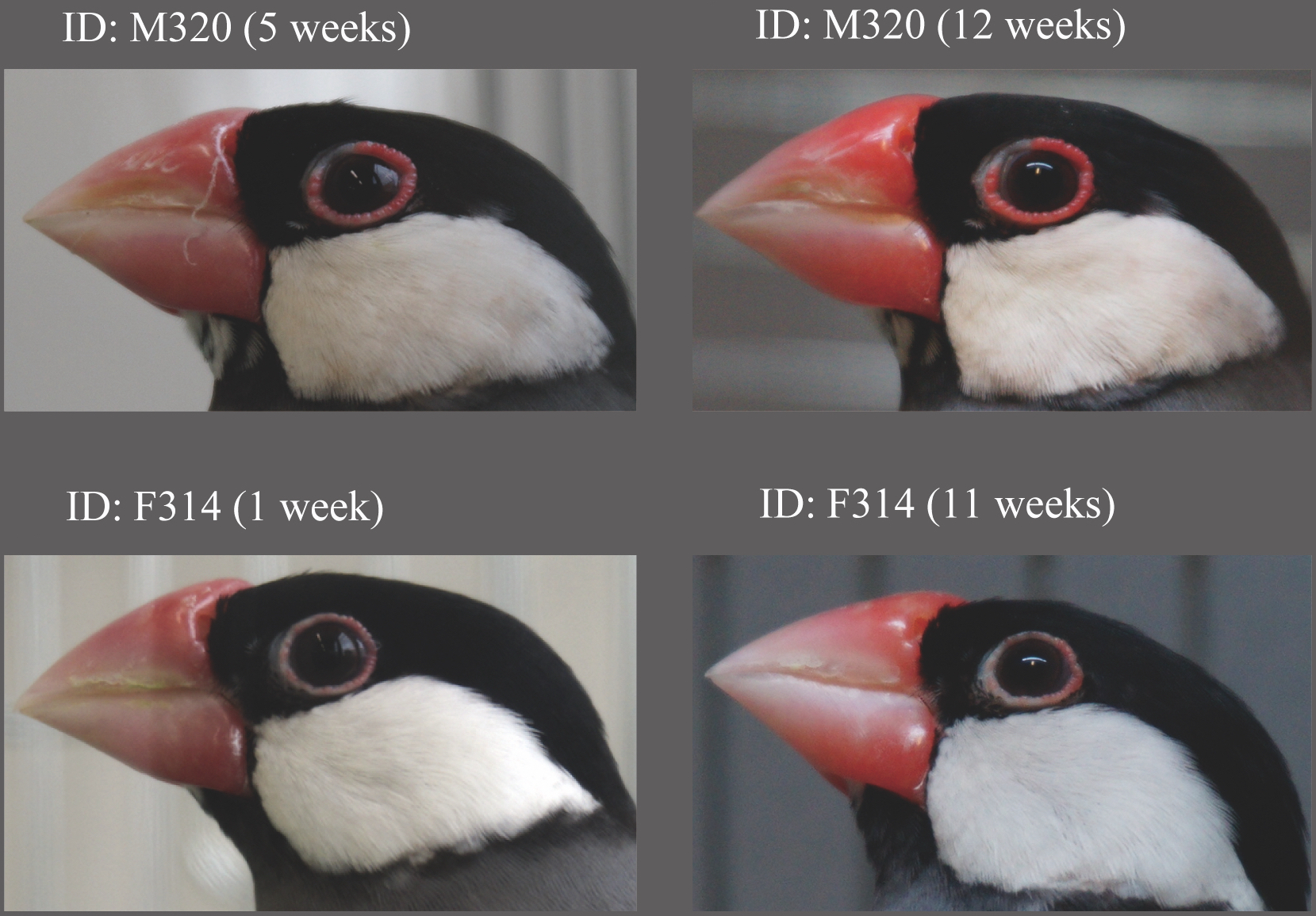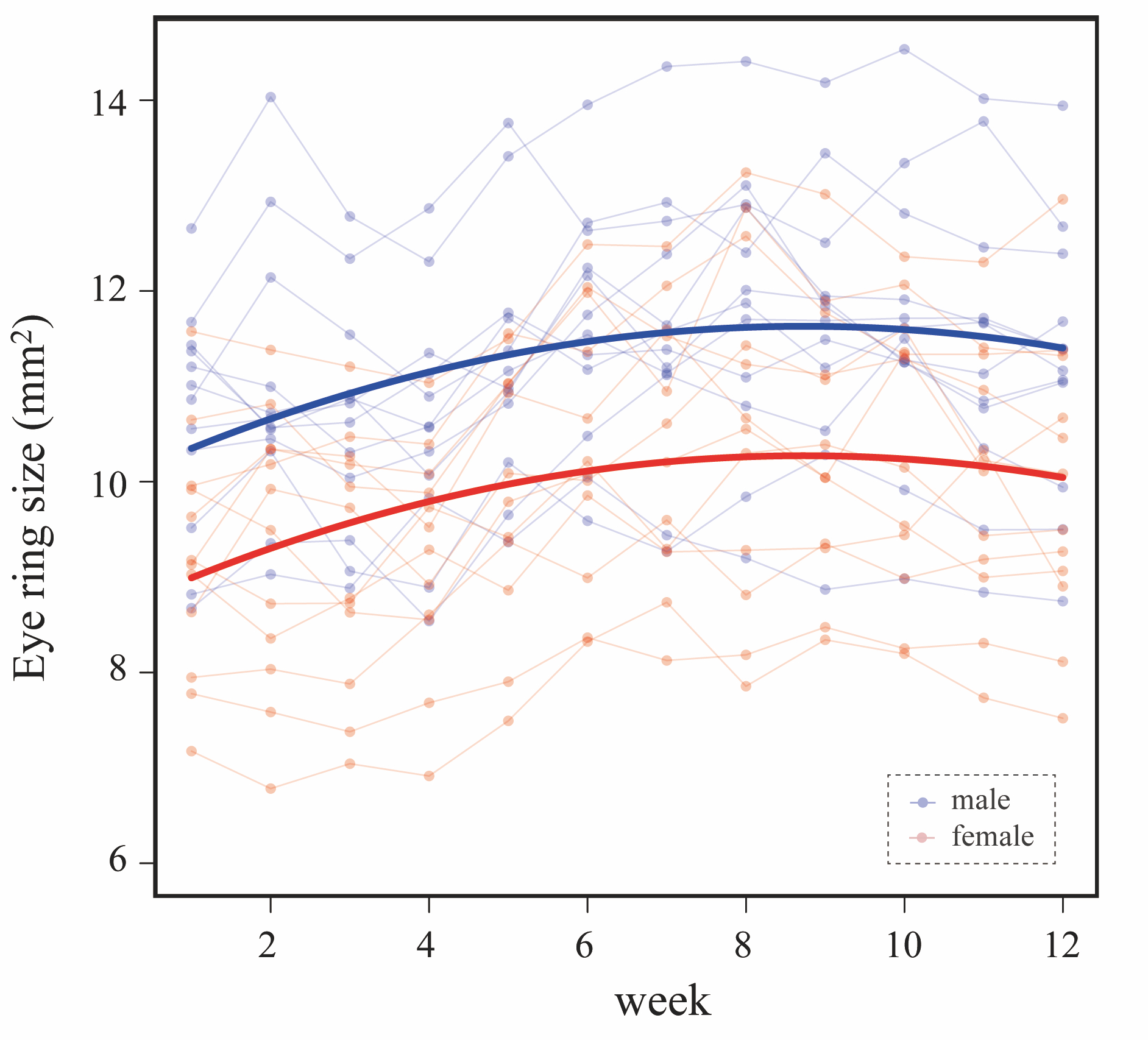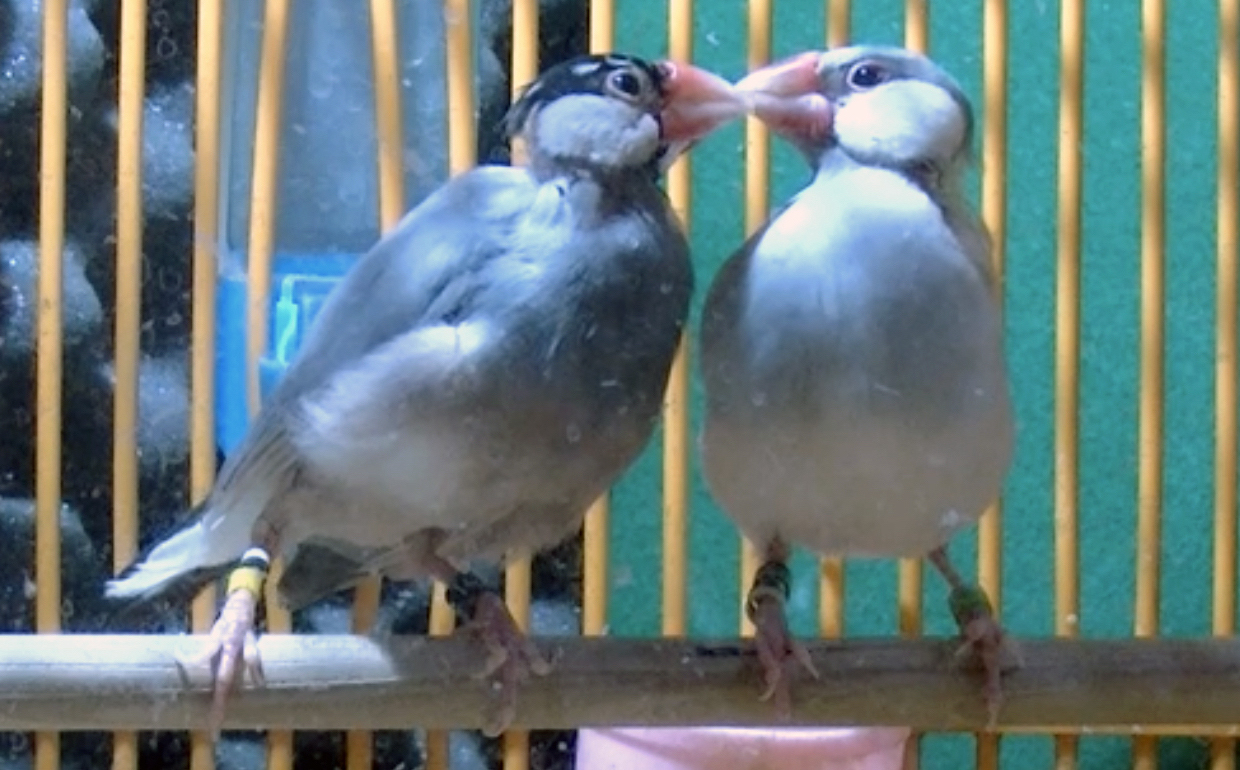Pair-bonded Java sparrows show enlarged eye rings to signal breeding readiness.
Birds are known for their elaborate courtship rituals and romantic gestures that are replete with beautiful songs, complex dances, gift-giving practices, preening, and flamboyant plumage. While changes in colorful external attributes during this period has attracted much attention, the role of facial features remains an under-investigated aspect of this behavior.
Associate Professor Masayo Soma and her research group at the Graduate School of Science, Hokkaido University, reported increased swelling in Java sparrows' eye rings-an area of blushed bare skin around the eyes-upon bonding with a mate of their choice. Observed in both females and males, this change acts as a signal for mating readiness. Their work was published in the journal PLOS ONE.

Eyes of love - eye rings of Java sparrows swell after forming a bond with their mate. Males (top row) show larger swellings than females (bottom row). (Jenna Onaga, Masayo Soma. PLOS ONE. October 25, 2023)
"Breeding-related blushing in primates is well studied, as they show conspicuous changes. For example, in rhesus macaque, males with redder faces appear more attractive to females. Other primates, like mandrills, use it to assert dominance. Birds also display colorful bare areas, like beaks and legs, but blood-flow based blush coloring in birds has gone largely unnoticed," Soma explained.
"In Java sparrows (Lonchura oryzivora), both sexes have bright pink bare skin around their eyes that swell when the birds are in breeding condition. We predicted that changes in eye rings would reflect physiological conditions and signal fertility, especially among mating pairs," Soma elaborated. Java sparrows are known to be socially monogamous, showing mutual courtship and pair-bonding for a long time.
The experiment lasted 12 weeks and involved 44 adult sparrows from a laboratory population. Soma details, "We compared individual changes in the eye ring size between birds paired with preferred mates, those paired with non-preferred opposite-sex individuals, and single birds."

Weekly variations in eye ring size of Java sparrows when pair-bonded show a gradual increase over weeks up to a maximum size. (Jenna Onaga, Masayo Soma. PLOS ONE. October 25, 2023)
A significant increase in the eye rings of both sexes amongst pair-bonded partners was observed throughout the experiment, a change not seen when they were kept alone or with a non-preferred partner. With bare skin having the potential to change more dynamically than plumage, which requires time for molting, swollen eye rings act as a rapid indicator of mating readiness. "Java sparrows are native to the tropics and breed most of the year. Morphological changes signaling fertility are important for ensuring reproductive synchrony-especially in the tropics, where seasonal cues are absent," added Soma.
The results show that eye ring changes, in addition to duet dancing and vocal and non-vocal sound communication, play an important role in communication between pair-bonded Java sparrows.
Original Article:
Jenna Onaga, Masayo Soma. Eyes of love: Java sparrows increase eye ring conspicuousness when pair-bonded. PLOS ONE. October 25, 2023.
DOI: 10.1371/journal.pone.0292074







